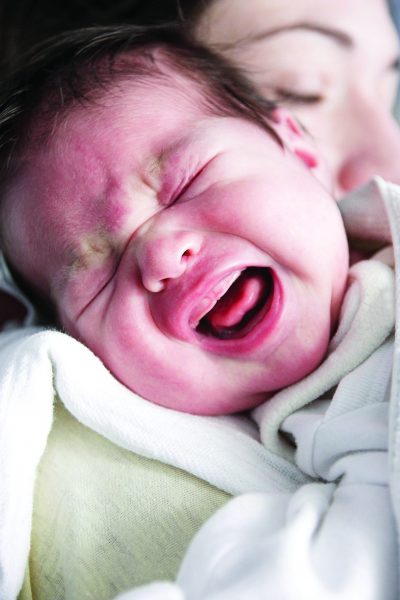The neonatal period (the first four weeks of newborn’s life) is the most vulnerable time for a child. Neonatal pertussis is one of the major concerns during this period and maternal immunisation during pregnancy is highly recommended as a prevention strategy.
Considered the most critical time for babies, the first 28 days of life are when feeding patterns are established and infant-parent bonding starts. During this time, the risk of infection is higher, making babies vulnerable and leaving them exposed to dangerous situations.
Indeed, babies are more likely to die during the first month of life compared to any other period during childhood. The average global death rate in 2019 for babies aged 1 month or below was 17 deaths per 1,000 live births, higher than the probability of death for infants aged between 1 month and 12 months, which was 11 deaths per 1,000.
Neonatal infections are dangerous as a newborn’s immune system is underdeveloped and more susceptible to infection, which can be contracted in the womb via placenta, in the birth canal during birth, or after birth from the mother or other infected persons. HIV, hepatitis B, pertussis and streptococcus are among the common infections that a child is susceptible to at this time.
Mother’s protection
There are two ways in which mothers provide passive protection against pathogens to their baby in the first few months of life:
- During pregnancy: mother’s antibodies are transferred via the placenta to her foetus.
- After birth: babies are fed mother’s breastmilk which contains antibodies.
Maternal immunisation, which enhances these forms of protection, provides two-fold protection to both mother and baby. The mother is protected against infectious diseases that may lead to severe outcomes in pregnancy, and the baby is protected against certain critical illnesses during the neonatal period.
Generally, pregnant women can be vaccinated with inactivated virus or bacterial vaccines, or toxoids. Maternal immunisations against pertussis, tetanus and influenza have been routinely recommended as part of the strategy to prevent neonatal infection. Studies have found these vaccines to be safe with no evidence of adverse effects on foetus.
In contrast, live, attenuated virus and bacterial vaccines, such as the MMR (mumps, measles, rubella) vaccine, may pose risks to the foetus, and are thus not recommended for pregnant women.
Maternal Tdap vaccination
Malaysia’s National Immunisation Programme schedules DTaP (diphtheria, tetanus, pertussis) vaccination for babies at 2 months old. However, babies are exposed to pertussis infection in the first 60 days of life. Thus, pregnant women are strongly advised to take Tdap vaccine to ensure protection for their newborns during this window period.
Tdap vaccine is a booster shot covering tetanus, diphtheria and pertussis, given to adolescents and other adults, while the DTaP vaccine is given to children in multiple doses. WHO recommends one dose of Tdap vaccine for every pregnancy, during the late second or early third trimesters or from 27th to 36th weeks of pregnancy, at least 15 days before the expected date of delivery.
Mothers are also recommended to repeat Tdap vaccination for every pregnancy as the protection wanes over time. If it is not taken during pregnancy, immediate postpartum Tdap vaccination is recommended to reduce transmission.
A case study
A 19-day old baby was admitted to the neonatal intensive care unit (NICU) after showing symptoms of cough, apnoea, cyanosis and progressive respiratory failure. She first showed mild viral upper respiratory tract infection four days earlier, but the symptoms had worsened, requiring her to be hospitalised.
According to the mother, the baby had trouble clearing the thick mucus in her airway, depriving her of oxygen. The continuous coughs also caused stress on her weak heart. Upon arriving at the hospital, the baby had already turned bluish. Later, she was diagnosed with pertussis. The source of transmission was believed to be the mother who had a mild cough 4 weeks earlier and did not receive Tdap vaccination during her pregnancy.
Most neonatal pertussis cases occur when babies were infected by close family members, especially the mother, who did not realise they were infected. This is due to mild or non-specific symptoms in adults, a lack of awareness about pertussis or the vaccine, and unavailable diagnostic facilities.
Pertussis or any other infection can cause serious and fatal complications in young infants. In 2018, 22 deaths were recorded due to pertussis in Malaysia. These deaths were mostly unvaccinated babies under 6 months of age. Maternal vaccination during pregnancy is the best preventive measure against neonatal pertussis. If you are pregnant, consult your doctor about getting the Tdap vaccination.
An educational collaboration with Obstetrical and Gynaecological Society of Malaysia.








Comments